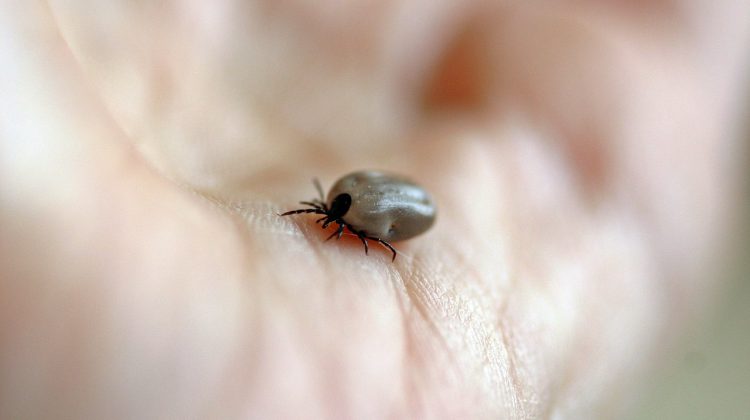Spring is here, and warmer weather means more people will likely be outside enjoying the outdoors, but so will BC’s tick population.
Ticks, as described by Interior Health, are small bugs that bite and feed on the blood of humans and animals and can sometimes transmit disease.
IH has some precautions people can take to prevent illnesses that may be transmitted from tick bites.
“There are easy things you can do to protect yourself from ticks, such as covering up before you head outdoors and checking for ticks when returning from a walk, hike, or bike ride,” says Dr. Fatemeh Sabet, Interior Health medical health officer.
“Most tick bites do not result in illness. However, any bite from a tick should be cleaned because infection can occur whenever there is a break in the skin,” she adds.
Ticks carry toxins that can cause temporary muscle weakness and paralysis if they remain attached for long periods — especially in children or seniors — but the symptoms fade once the tick is removed from the skin.
The signs of many tick-borne infections can be quite similar and include fever, headache, muscle pain, and rash.
How to protect yourself from tick encounters:
IH said one of the most important ways to reduce the risk of tick illnesses is to do a skin check on yourself and your children after being outdoors. As well, follow these additional precautions:
- Walk on cleared trails when in tall grass or wooded areas.
- Wear a hat, long sleeves, pants, and light-coloured clothing.
- Tuck pant legs into socks or boots.
- Apply insect repellent containing DEET on uncovered skin.
- Carefully check clothing and scalp (covered or not) when leaving an area where ticks may live.
- Regularly check household pets for ticks.
If you find a tick on yourself, a family member, or a pet, IH said to wear gloves when removing it and be careful not to crush the tick as this could cause it to inject its stomach contents into your skin.
You should use needle-nose tweezers to gently grasp the tick close to the skin, then without squeezing it, pull the tick straight out. After removing the tick, clean the area with soap and water.
Most individuals with acute Lyme disease do not notice the biting tick that precedes the illness.
Interior Health said while ticks are common in the Interior Health region, most are the wood tick which does not carry the Lyme disease bacteria.
The wood tick can carry other diseases such as Rocky Mountain spotted fever, although it is rare.
Lyme disease-carrying ticks are more common in the coastal areas of B.C.
Anyone who has the typical bull’s-eye target skin rash of Lyme disease, or other symptoms compatible with Lyme disease, should see their physician.
Want to get your business noticed? Have you considered advertising through your local radio station? Speak to one of our sales agents and find out how radio advertising can boost your business today. Call 250-352-1902 or email Vista Radio.





